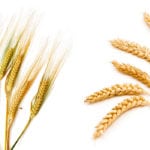Changes to how the Canadian Grain Commission (CGC) regulates Canada’s grain industry are needed to ensure industry competitiveness, an Agri-Food Economic Strategy Table report concludes. To that end the report recommends the CGC accredit private companies to do the CGC’s mandatory outward weighing and inspection. It also says the wheat class system “needs to take











